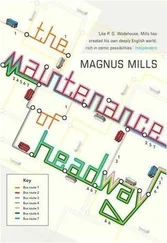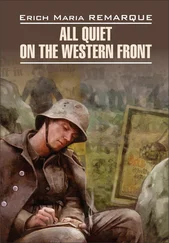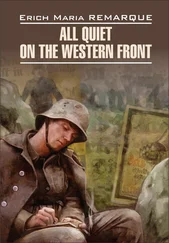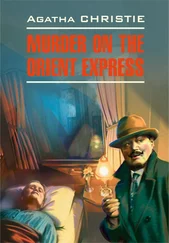Magnus Mills - All Quiet on the Orient Express
Здесь есть возможность читать онлайн «Magnus Mills - All Quiet on the Orient Express» весь текст электронной книги совершенно бесплатно (целиком полную версию без сокращений). В некоторых случаях можно слушать аудио, скачать через торрент в формате fb2 и присутствует краткое содержание. Год выпуска: 2004, Издательство: HarperPerennial, Жанр: Современная проза, на английском языке. Описание произведения, (предисловие) а так же отзывы посетителей доступны на портале библиотеки ЛибКат.
- Название:All Quiet on the Orient Express
- Автор:
- Издательство:HarperPerennial
- Жанр:
- Год:2004
- ISBN:нет данных
- Рейтинг книги:5 / 5. Голосов: 1
-
Избранное:Добавить в избранное
- Отзывы:
-
Ваша оценка:
- 100
- 1
- 2
- 3
- 4
- 5
All Quiet on the Orient Express: краткое содержание, описание и аннотация
Предлагаем к чтению аннотацию, описание, краткое содержание или предисловие (зависит от того, что написал сам автор книги «All Quiet on the Orient Express»). Если вы не нашли необходимую информацию о книге — напишите в комментариях, мы постараемся отыскать её.
All Quiet on the Orient Express — читать онлайн бесплатно полную книгу (весь текст) целиком
Ниже представлен текст книги, разбитый по страницам. Система сохранения места последней прочитанной страницы, позволяет с удобством читать онлайн бесплатно книгу «All Quiet on the Orient Express», без необходимости каждый раз заново искать на чём Вы остановились. Поставьте закладку, и сможете в любой момент перейти на страницу, на которой закончили чтение.
Интервал:
Закладка:
“You could do with an assistant really,” remarked Bryan. “Deakin’s trouble was that he tried to do it all by himself. Want a biscuit?”
“Please.”
He produced a biscuit tin and removed the lid. Inside were fig rolls, malted milks and custard creams. “Take your pick.”
“Blimey,” I said. “Where’d you get these from? I can’t lay my hands on anything except plain digestives.”
Bryan looked concerned. “Dealing with Hodgey, are you?” he asked.
“Yeah.”
“And he won’t let you have what you want?”
“No.”
“He can be like that with newcomers, can Hodgey. Until he gets to know you a bit better, like.”
“Well, how long does that take?”
“Ooh, it depends,” said Bryan. “Could be months, could be years.”
“Looks like I’m stuck with digestives then,” I sighed.
“Tell you what,” he said. “Why don’t you let me send in your order? Hodgey won’t know the difference and you can collect it from here.”
“Wouldn’t you mind?”
“Course not, it’s no trouble.”
“What about settling his bill?”
“Oh, don’t worry about that. We can sort it out later.”
“OK then,” I said. “Well, thanks very much. I’ll give you my list tomorrow.”
“Alright.”
I stayed at Bryan’s another half-hour, sharing tea and biscuits, before I stirred myself. Then I thanked him again and headed home, pleased to have got through the entire circuit without incident. All the milk I’d picked up at five o’clock this morning was now gone. The crates in the rear of the pick-up were full of empty bottles, rinsed and ready for return to the dairy. As I journeyed back I became increasingly aware of the way they rattled and clinked all the time. This was something I’d failed to notice while I was working flat out, but now the sound seemed to follow me incessantly all the way along the lake road and through Millfold. Finally I turned into the gateway at Hillhouse and passed over the painted green square. The rattling ceased as I halted for a few moments, remembering that this was the place I had first met Deakin only a few weeks ago. I got out and looked at the gate I’d been painting that sunny afternoon. How things had changed since then! Now Deakin was gone and I had become the official milkman for Wainskill and Millfold. It occurred to me that it might be a nice idea annually to repaint the square in his memory. He’d been wearing a proper dairyman’s overall at the time, and I wondered whether I should think about getting one for myself.
♦
With the rest of the afternoon free I could at last get on with the boats. It seemed like ages since I’d finished preparing them, and now I was quite looking forward to applying some paint. Mr Parker had given me the keys so I let myself into the paint store, selected a couple of brushes, and then went over to the big shed. Inside, the boats were all lined up on their wooden blocks just as I’d left them. I opened a tin of green paint, stirred it, and then began work on the first one. As I said before, whoever painted these boats originally had done a very thorough job. In all the hours I’d spent with the electric sander, I had only managed to dull down the old paintwork, rather than remove it completely. The first boat’s hull remained a faded but very obvious maroon colour. And as I began going over it with fresh green paint I began to get an odd feeling of unease. It was almost as if I was painting over something irreplaceable. I’d been expecting this part of the job to be the most satisfying, but I soon found it was quite the opposite. With every brush stroke the boat looked less majestic and more mundane. Even worse was when I had to paint over the gunwales and the curved prow, whose ancient lines had looked so outstanding in gold. As the old paintwork disappeared under the new I discovered that I was rapidly losing interest in the task. After all, my idea had been to restore these boats to their former glory, not reduce them to mere tubs. I also realized that I was working at a much slower rate than I had been at the outset, but put this down partly to the fact that I was now quite tired, having been up since the early hours. I was just pondering whether to pack in for the day when I heard a vehicle arrive outside. Mr Parker had evidently returned from wherever he’d been, and a few moments later came into the shed to see how I was progressing.
“Well,” he said, giving the boat a glance-over. “The paint seems to be going on quite nicely, doesn’t it?”
“Suppose so,” I replied, without enthusiasm.
“It’ll need several coats, won’t it?”
“Expect so.”
“Well, don’t worry about slapping on as many as it takes.”
“OK.”
“I’ve brought back some more chain and a wheel hub,” he continued. “So when you’ve got a moment can you make up another mooring?”
I wasn’t sure when he expected me to ‘get a moment’ exactly, but I just said OK again, and watched as he moved towards the chimney stove in the corner.
“Bit chilly in here,” he remarked. “I think we’ll get this going for you, keep the place nice and warm.”
Next thing we were clearing away the bits and pieces around the stove, and finding suitable pieces of timber to burn. To tell the truth I’d been so preoccupied with the boats that I hadn’t noticed how cold the weather had turned. No wonder I felt lethargic and sluggish. In contrast. Tommy Parker seemed to be in a very expansive mood. Soon there were flames darting up from within the stove, and he was making adjustments to the air regulator on the front. As the shed warmed up I began to feel less fed up than I had earlier.
“There you are,” he said, when he’d got the stove going full blast. “That’ll keep it cosy in here.”
“Thanks,” I said.
“I’m off down south with the oil drums tomorrow, so I’ll leave you to it.”
“Right.”
Shortly afterwards I had another visitor. Around five o’clock the door opened and Gail came in. I noticed she’d already changed out of her school uniform.
“There’s a message for you from Mr Wanless,” she said.
“Who’s that then?” I asked.
“You know,” she replied. “Drives the school bus.”
“You mean Maurice?”
“I’ve always called him Mr Wanless.”
“Oh…right,” I said. “What’s the message?”
“He says it’ll be alright to go back to the Packhorse tonight.”
“Ah, that’s very good of him. I’ll have to buy him a pint.”
Gail looked disappointed. “Does that mean we won’t be able to have any more darts practice?”
“No, no, should be able to squeeze some in, although I’m a bit busy just at the moment.”
“So we will do it again then?”
“Oh yeah,” I said. “Promise.”
She smiled. “Thanks.”
I watched her walk to the door and go out, and had to remind myself not for the first time that she was only fifteen. Maybe I should have just said I had no time available to spend with her and left it at that. After all, it would have been practically the truth. Apart from having a milk round to look after and all these boats to paint, there was also a mooring weight to make and put down, as well as a timber contract to complete. On top of all that there was my commitment to the darts team, which seemed rather more important than giving lessons to a teenage girl in a hay-loft. In fact, when I thought about it there was hardly a moment to spare, and now that the shed had warmed up I decided to bash on with the painting for another couple of hours. By seven o’clock I’d got the first coat finished on the boat I was doing and it looked OK, although I remained unhappy about the choice of colour. After that I dashed over to the bothy, had my tea and then went out.
Читать дальшеИнтервал:
Закладка:
Похожие книги на «All Quiet on the Orient Express»
Представляем Вашему вниманию похожие книги на «All Quiet on the Orient Express» списком для выбора. Мы отобрали схожую по названию и смыслу литературу в надежде предоставить читателям больше вариантов отыскать новые, интересные, ещё непрочитанные произведения.
Обсуждение, отзывы о книге «All Quiet on the Orient Express» и просто собственные мнения читателей. Оставьте ваши комментарии, напишите, что Вы думаете о произведении, его смысле или главных героях. Укажите что конкретно понравилось, а что нет, и почему Вы так считаете.












